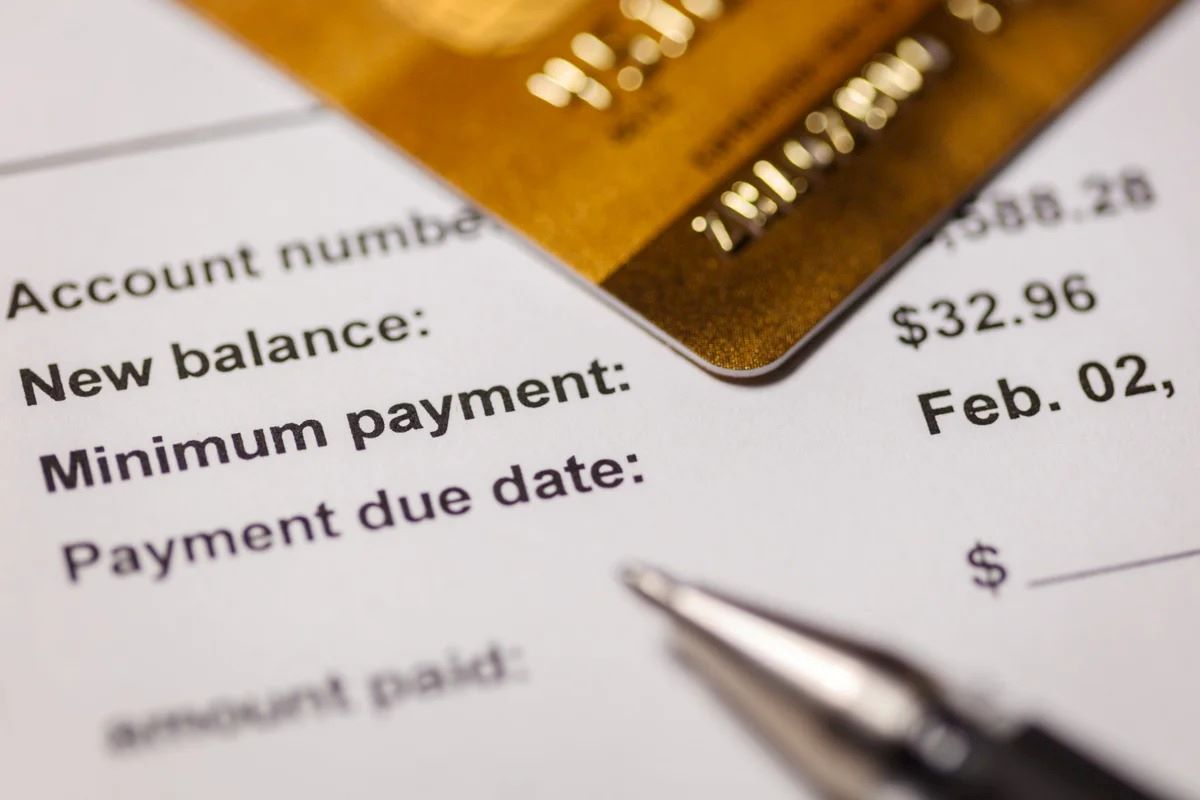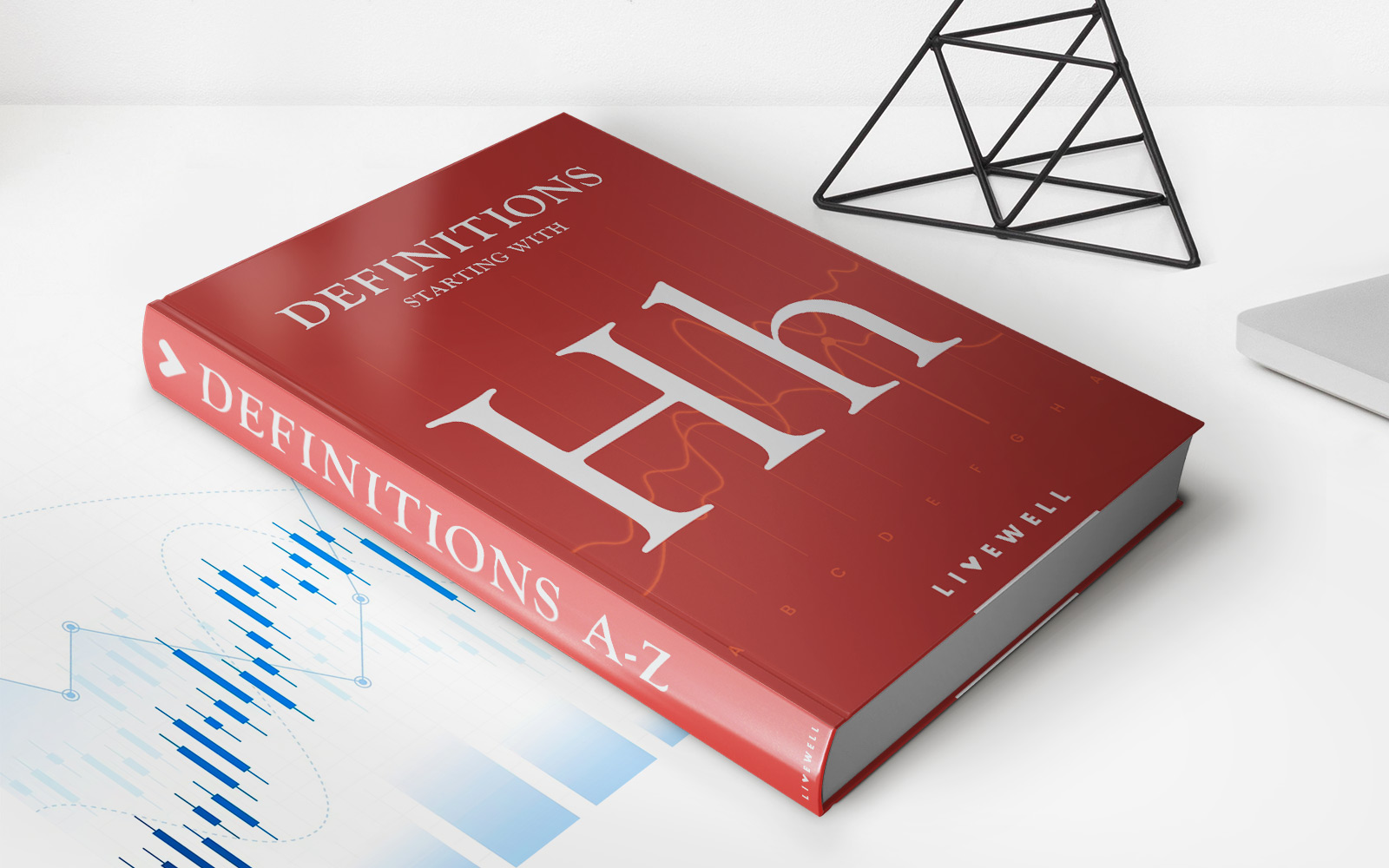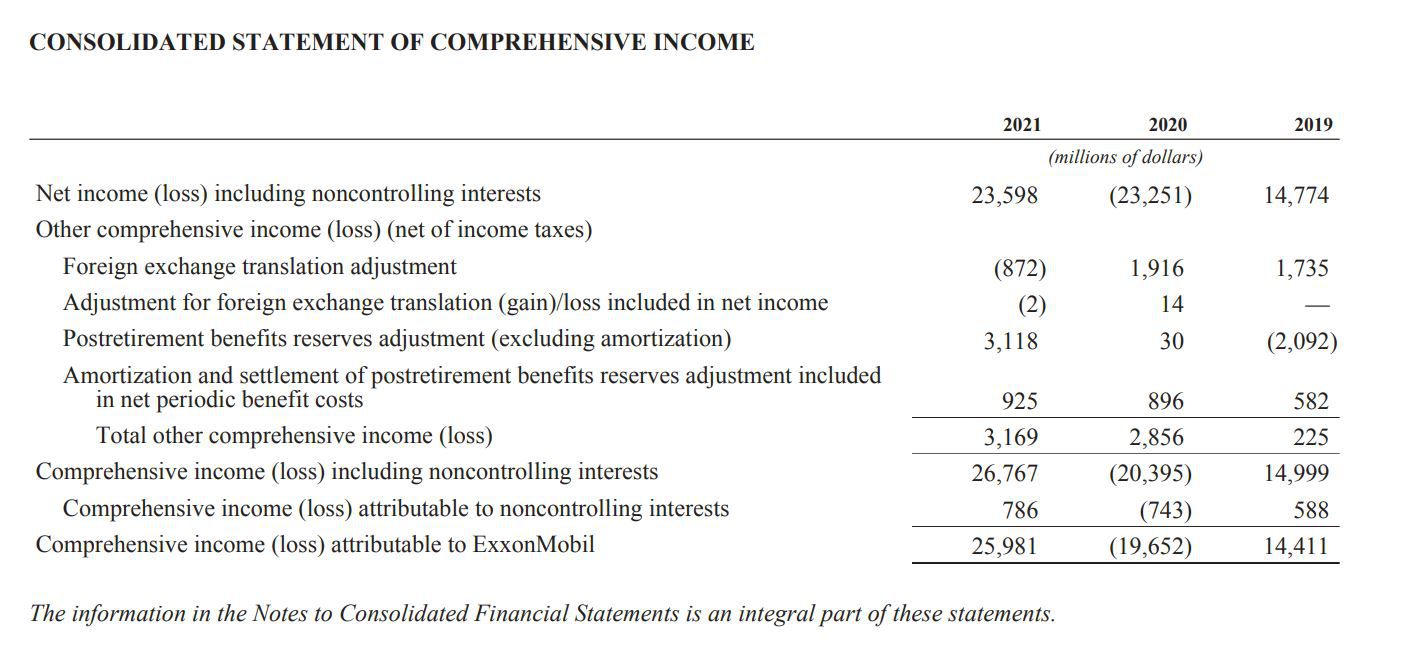Home>Finance>What Is The Problem With Paying Only Your Minimum Credit Card Balance Each Month


Finance
What Is The Problem With Paying Only Your Minimum Credit Card Balance Each Month
Modified: December 30, 2023
Learn why only paying your minimum credit card balance each month can be a problem and discover the importance of proper financial management skills with Everfi's finance courses.
(Many of the links in this article redirect to a specific reviewed product. Your purchase of these products through affiliate links helps to generate commission for LiveWell, at no extra cost. Learn more)
Table of Contents
Introduction
Managing credit card balances is an important aspect of personal finance, and it can have a significant impact on your financial well-being. While credit cards offer convenience and flexibility in making purchases, they also come with the responsibility of repaying the borrowed amount.
One common pitfall many individuals fall into is the habit of paying only the minimum balance on their credit cards each month. This may seem like a manageable option at first, especially if you’re facing budget constraints or other financial obligations. However, it can lead to a cycle of debt and potentially cause long-term financial difficulties.
In this article, we will explore the problem with paying only the minimum credit card balance each month. We will delve into the consequences it can have on your credit score, the accumulation of interest over time, and the overall impact on your financial stability. Additionally, we will provide alternatives to merely paying the minimum balance, offering strategies to help you proactively manage your credit card debt.
By understanding the implications of paying only the minimum balance and exploring alternative options, you can make informed decisions that will positively impact your financial future.
Understanding Credit Card Balance
Before we delve into the problem with paying only the minimum credit card balance each month, let’s take a moment to understand what exactly a credit card balance entails.
Your credit card balance represents the total amount of money you owe to the credit card company. It includes any purchases you have made, as well as any fees or interest charges that have been added to your account. When you receive your credit card statement each month, it will show the current balance and the minimum payment required.
It’s important to note that credit cards typically have high interest rates compared to other forms of financing. This means that if you carry a balance on your card and only make minimum payments, you can end up paying significantly more in interest charges over time.
Moreover, credit cards allow you to make new purchases while carrying a balance, which can further contribute to the overall amount you owe. This can create a cycle of debt that becomes increasingly difficult to break free from.
Now that we have a basic understanding of credit card balances, let’s explore the potential problems that arise when individuals choose to pay only the minimum balance each month.
The Minimum Payment Trap
One of the major problems with paying only the minimum credit card balance each month is falling into the minimum payment trap. The minimum payment is the lowest amount you can pay to keep your account in good standing, as required by the credit card issuer. While it may seem tempting to pay just the minimum, it can have serious consequences in the long run.
Here are a few key aspects of the minimum payment trap:
- Extended repayment period: By paying only the minimum balance, you are stretching out the time it takes to pay off your debt. This means you’ll be stuck in debt for a longer period, potentially years, which can hinder your financial progress and limit your ability to achieve other financial goals.
- Increase in interest charges: Credit cards charge interest on the remaining balance if it is not paid in full each month. By making only the minimum payment, you allow interest to accumulate on the unpaid portion, leading to an increase in interest charges. This can significantly inflate the overall amount you owe, making it even more challenging to escape the cycle of debt.
- Lack of progress towards debt repayment: When you pay only the minimum balance, you’re essentially treading water. While it helps you avoid late payment fees and penalties, it does little to reduce the principal balance. As a result, you may find it challenging to make meaningful progress towards paying off your debt.
The minimum payment trap can be deceiving, as it gives the illusion of making progress on your debt while keeping you in a cycle of perpetual payments. While it may provide some short-term relief, it can lead to significant long-term financial consequences.
In the next section, we will explore the impact that paying only the minimum balance can have on your credit score.
Impact on Credit Score
Paying only the minimum credit card balance each month can have a negative impact on your credit score. Your credit score is a three-digit number that represents your creditworthiness and is used by lenders to determine your creditworthiness.
Here’s how paying only the minimum balance can affect your credit score:
- Increased credit utilization: Credit utilization is the ratio of your credit card balances to your credit limits. By carrying a high balance and paying only the minimum, your credit utilization ratio can increase, which has a negative impact on your credit score. It’s generally recommended to keep your credit utilization below 30% to maintain a healthy credit score.
- Payment history: Your payment history is one of the most significant factors in determining your credit score. Making only the minimum payment can indicate to lenders that you may be struggling to manage your finances and can be seen as a red flag. Consistently making larger payments or paying off the balance in full demonstrates responsible credit management and can positively impact your credit score.
- Limited credit history: Paying off your credit card balance in full demonstrates responsible credit management and helps build a positive credit history. On the other hand, consistently making only minimum payments doesn’t show a strong credit history and can limit your creditworthiness in the eyes of lenders.
It’s important to note that the impact on your credit score will depend on various factors, such as your overall credit profile and the specifics of your credit card payments. However, paying only the minimum balance can have a cumulative negative effect on your credit score over time, making it harder to access favorable interest rates and loan terms in the future.
In the next section, we will discuss the accumulation of interest and the long-term financial consequences of paying only the minimum credit card balance each month.
Accumulating Interest
One of the most significant drawbacks of paying only the minimum credit card balance each month is the accumulation of interest. Credit cards typically come with high interest rates, and when you only make minimum payments, you allow interest charges to add up over time.
Here are a few key points to understand about accumulating interest:
- Compound interest: Credit card interest is often compounded on a daily or monthly basis, meaning that interest is charged not only on the original balance but also on any accumulated interest. This compounding effect can quickly cause your debt to balloon, making it harder to pay off.
- Long-term cost: By paying only the minimum balance, you are essentially extending your repayment period. The longer it takes to pay off your debt, the more interest you accrue. This can translate into significantly higher overall costs of borrowing, potentially costing you hundreds or even thousands of dollars in the long run.
- Slow progress on debt repayment: When you make only minimum payments, a significant portion of your payment goes towards interest charges rather than reducing the principal balance. This means that it will take considerably longer to pay off your debt, prolonging the burden of credit card payments and potentially hindering your financial progress.
It’s important to recognize that accumulating interest can make it difficult to escape the cycle of debt. The more interest you accumulate, the harder it becomes to make significant progress in paying off your credit card balance.
In the next section, we will explore the long-term financial consequences of paying only the minimum balance each month.
Long-term Financial Consequences
Paying only the minimum credit card balance each month can have significant long-term financial consequences that extend beyond the immediate burden of debt. Here are a few key implications to consider:
- Increased total cost: By only making minimum payments, you are extending the repayment period and allowing interest charges to accumulate. This can result in paying significantly more in interest over time, increasing the total cost of your debt and putting a strain on your overall financial health.
- Delayed financial goals: The longer you carry credit card debt, the longer it will take to achieve your other financial goals. Whether it’s saving for a down payment on a home, starting a business, or investing for retirement, being burdened by credit card debt can hinder your ability to make progress towards these goals.
- Reduced creditworthiness: Carrying credit card debt and making only minimum payments can negatively impact your credit score. A lower credit score can make it more difficult to qualify for loans, secure favorable interest rates, or obtain certain financial opportunities in the future.
- Stress and financial strain: Living with the weight of credit card debt can cause emotional stress and financial strain. Constantly worrying about making payments and managing debt can take a toll on your overall well-being and negatively impact other areas of your life.
- Limited financial freedom: Being trapped in a cycle of credit card debt restricts your financial freedom. It limits your ability to make choices based on what’s best for your future because you’ll constantly be tied down by debt obligations.
It’s crucial to understand that paying only the minimum credit card balance may provide temporary relief, but it can have long-lasting consequences on your financial well-being. It’s far more beneficial to proactively manage and eliminate your credit card debt to achieve greater financial stability and freedom.
In the next section, we will discuss alternatives to paying only the minimum balance, providing strategies to help you take control of your credit card debt.
Alternatives to Paying the Minimum Balance
If you find yourself stuck in the cycle of paying only the minimum credit card balance each month, it’s essential to explore alternative options that can help you regain control of your debt. Here are a few strategies to consider:
- Pay more than the minimum: The simplest and most effective step you can take is to pay more than the minimum balance each month. By allocating additional funds towards your credit card debt, you can accelerate the repayment process and reduce the amount of interest you accumulate. Even increasing your payment by a small amount can make a significant impact over time.
- Create a repayment plan: Develop a realistic repayment plan that outlines how much you can afford to pay towards your credit card debt each month. Consider prioritizing higher-interest rate cards first or employing the debt snowball or avalanche method to systematically pay off your debts. Stick to your plan and adjust as necessary to ensure steady progress.
- Consider a balance transfer: If you have multiple credit cards with high-interest rates, a balance transfer to a card with a lower interest rate could be a viable option. This allows you to consolidate your debt onto a single card, potentially saving money on interest and simplifying your repayment efforts. However, be mindful of any balance transfer fees and promotional periods that may expire.
- Explore debt consolidation: If you have substantial credit card debt and are struggling to manage multiple payments, debt consolidation may be worth considering. This involves taking out a loan to pay off your credit card debt, consolidating it into a single loan payment with a potentially lower interest rate. Debt consolidation can streamline your payments and help you pay off your debt more efficiently.
- Seek professional guidance: If your debt situation feels overwhelming or you need expert advice, consider reaching out to a credit counseling agency or a financial advisor. These professionals can help you evaluate your options, create a personalized debt repayment plan, and provide guidance on improving your financial well-being.
Remember, the key to overcoming credit card debt is to address it head-on and take proactive steps towards paying it off. It may require discipline, sacrifices, and a long-term commitment, but the financial freedom and peace of mind that come with being debt-free are well worth the effort.
Let’s wrap up the article in the next section.
Conclusion
Paying only the minimum credit card balance each month may seem like a temporary solution to financial constraints, but it can have far-reaching consequences on your financial well-being. The minimum payment trap, impact on your credit score, accumulation of interest, and long-term financial consequences all highlight the drawbacks of this approach.
However, there are alternatives that can help you regain control of your credit card debt. By paying more than the minimum, creating a repayment plan, exploring balance transfers or debt consolidation, and seeking professional guidance when needed, you can take proactive steps to break free from the cycle of debt.
Remember, managing your credit card balance responsibly is crucial. Aim to pay off your balance in full each month whenever possible to avoid interest charges and maintain a healthy credit score. If you find yourself unable to do so, prioritize paying more than the minimum to accelerate your debt repayment and minimize the long-term financial impact.
By taking control of your credit card debt, you’ll not only improve your financial stability but also increase your financial freedom. The journey to becoming debt-free may require sacrifices and discipline, but the rewards are well worth it.
Take the first step today and commit to actively managing your credit card balance. Your future self will thank you for it.













